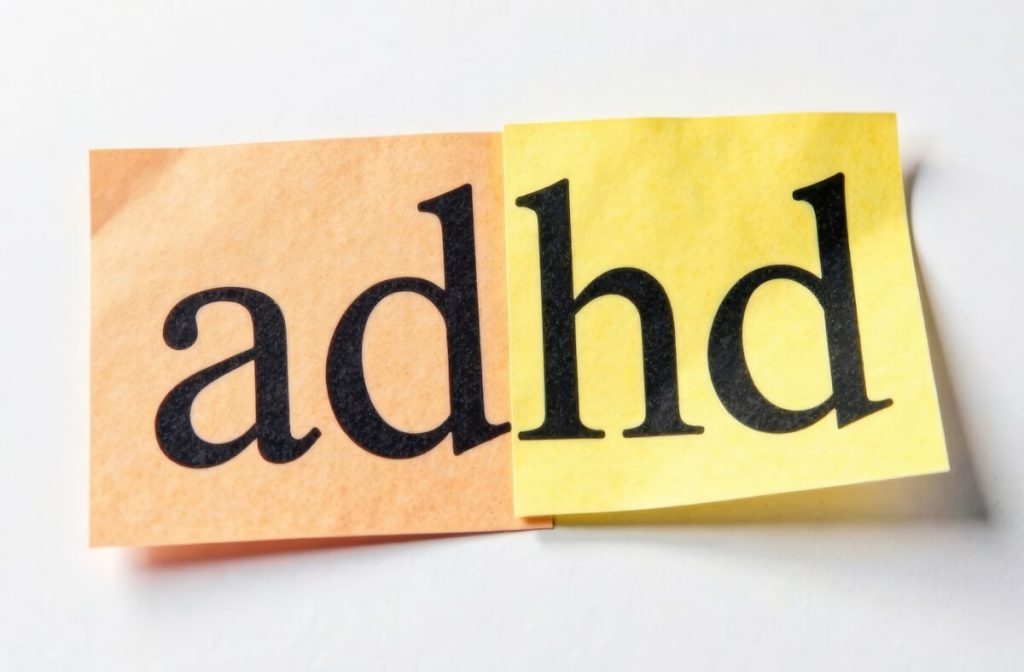

(© Rainer Hendla | Dreamstime.com)
In a nutshell
- Adults diagnosed with ADHD have significantly shorter life expectancies: men live approximately 7 years less, and women nearly 9 years less, than those without ADHD
- Only about one in nine adults with ADHD are diagnosed in the UK, suggesting the study’s findings may not represent the full ADHD population
- The life expectancy gap appears linked to preventable factors, including higher rates of physical and mental health conditions, smoking, and limited access to specialized healthcare support
LONDON — Seven years. That’s how much sooner men with ADHD are dying compared to their neurotypical peers, and for women, the outlook is even bleaker at nearly nine years. These sobering numbers emerge from a new study examining life expectancy in adults with ADHD, painting a picture far more serious than the familiar narrative of forgotten appointments and misplaced keys.
The research, published in The British Journal of Psychiatry, analyzed data from nearly 10 million people across UK general practices, identifying over 30,000 adults with diagnosed ADHD. This represents just one in nine of the estimated ADHD population, as most cases remain undiagnosed.
“It is deeply concerning that some adults with diagnosed ADHD are living shorter lives than they should,” says Professor Josh Stott, senior author from University College London Psychology & Language Sciences, in a statement. “People with ADHD have many strengths and can thrive with the right support and treatment. However, they often lack support and are more likely to experience stressful life events and social exclusion, negatively impacting their health and self-esteem.”
Living with ADHD extends far beyond difficulties with focus and organization. People with the condition often experience differences in how they focus their attention. While they may possess high energy and an ability to focus intensely on their interests, they frequently struggle with mundane tasks. This can lead to challenges with impulsiveness, restlessness, and differences in planning and time management, potentially impacting success at school and work.


The study revealed that adults with ADHD were more likely to develop physical health conditions like diabetes, heart disease, chronic respiratory problems, and epilepsy. Mental health challenges were particularly prevalent: anxiety, depression, and self-harm occurred at notably higher rates than in the general population.
Treatment access remains a critical issue. A national survey found that while a third of adults with ADHD traits received medication or counseling for mental health issues (compared to 11% without ADHD), nearly 8% reported being denied requested mental health treatment. That rate is eight times higher than those without ADHD.
“Only a small percentage of adults with ADHD have been diagnosed, meaning this study covers just a segment of the entire community,” explains lead author Dr. Liz O’Nions. “More of those who are diagnosed may have additional health problems compared to the average person with ADHD. Therefore, our research may over-estimate the life expectancy gap for people with ADHD overall, though more community-based research is needed to test whether this is the case.”
The research carries particular weight because it drew from the UK’s primary care system, where almost everyone is registered. This comprehensive dataset allowed researchers to track real health outcomes rather than relying on self-reported information or smaller samples.
The gender disparity, with women losing even more years of life than men, raises important questions about how ADHD manifests and is treated across genders. Historically, the condition has been better recognized in males, potentially leaving many women undiagnosed until later in life, if at all.
“Although many people with ADHD live long and healthy lives,” Dr. O’Nions notes, “our finding that on average they are living shorter lives than they should indicates unmet support needs. It is crucial that we find out the reasons behind premature deaths so we can develop strategies to prevent these in future.”
These findings demand immediate attention from healthcare providers and policymakers. Treatment and support for ADHD is associated with better outcomes, including reduced mental health problems and substance use.
The numbers speak for themselves: 7 years, 9 years, 3% of adults affected. But behind these statistics are real lives being cut short by a condition that’s often dismissed as a simple attention problem. This study doesn’t just highlight a gap in life expectancy, it exposes a gap in our understanding of what ADHD truly means for those living with it.
Paper Summary
Methodology
The researchers conducted a matched cohort study using primary care data from the IQVIA Medical Research Data (IMRD) database. They identified adults with ADHD through diagnostic codes in their medical records and matched each ADHD patient with ten control individuals of the same age, sex, and primary care practice. The study calculated mortality rates using Poisson regression and employed life table methods to estimate life expectancy differences between the ADHD and control groups.
Results
The study found that males with diagnosed ADHD had a life expectancy of 73.26 years compared to 80.03 years for their non-ADHD peers. Females with ADHD had a life expectancy of 75.15 years versus 83.79 years for their control group. Both groups showed significantly higher rates of physical and mental health conditions, with particularly stark differences in rates of anxiety, depression, and substance use.
Limitations
The research only included individuals with formally diagnosed ADHD, representing about one-ninth of the estimated ADHD population. The findings might not generalize to undiagnosed individuals or those in different healthcare systems. The study also couldn’t determine specific causes of death and lacked detailed information about ethnicity and gender diversity.
Discussion and Takeaways
The research suggests that the reduced life expectancy in ADHD isn’t inevitable but likely results from modifiable risk factors and inadequate support systems. The findings emphasize the need for better adult ADHD services, improved physical health monitoring, and targeted interventions for high-risk behaviors like smoking.
Funding and Disclosures
The lead author received funding from the Dunhill Medical Trust. Various authors reported receiving support from different organizations including the Economic and Social Research Council, National Institute for Health and Care Research, and others. The study sponsors had no role in the research design, analysis, or manuscript preparation.
Publication Information
Published in The British Journal of Psychiatry (January 23, 2025), the study was conducted by researchers from University College London and Bradford Institute for Health Research. The paper, titled “Life expectancy and years of life lost for adults with diagnosed ADHD in the UK: matched cohort study,” was authored by Elizabeth O’Nions and colleagues.







